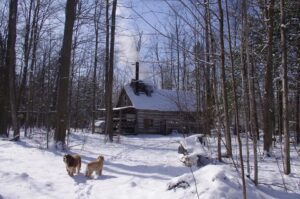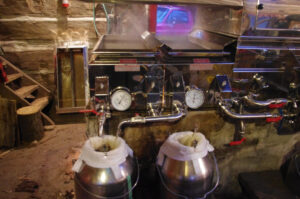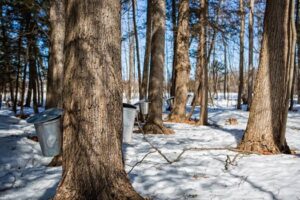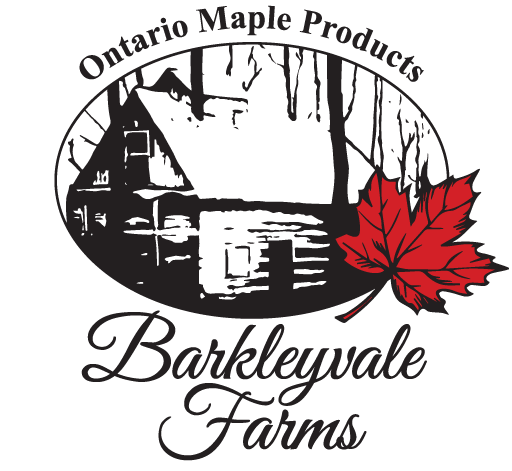Life is Sweet with Maple Syrup…
Our family has been making maple syrup since the 1970’s in our log sugar hut near Chesterville. The maple season for us is a chance to connect with family and friends and share our passion for creating great maple products.

The Sugar Hut
With over 800 taps, our sugar bush combines timeless traditions with new technology. The restored, 1860’s log building was moved here by our family in the 1970’s from the Nation Valley. Inside the sugar hut, we have a high efficiency modern evaporator where we boil our sap using wood from our sustainably managed forest. Parts of the original evaporator from the early 1900’s and the original stone fireplace used with iron kettles by early sugar-makers can still be found in the sugar bush.

The Sugar Bush
At Barkleyvale Farms, we honour, respect and safeguard the forest and the traditions associated with it. Our 200-acre forest is under the care of knowledgeable family members, a retired Professional Forester and specialists in forest ecology and wildlife. A forest management plan has been in place since 1978. Maples are only one part of this special forest -resident pileated woodpeckers, nesting barred owls, and towering white pines are present, as well as a provincially-significant wetland that feeds into the St. Lawrence River and the South Nation River.
We tap carefully and use new technology to ensure the forest remains healthy. We use pipeline for sap collection to minimize soil disturbance and small tap-holes that heal within one season. We keep several buckets around the sugar hut to maintain the tradition.

Our Family
Making syrup is a family affair- from tapping trees to gathering buckets, everyone pitches in. Owners, Brian Barkley and Trisha Barkley, began producing maple syrup with Brian’s father, Egerton, in 1974. Brian Barkley is a retired Registered Professional Forester and his daughter, Erica Barkley is an Ecologist.
4 generations of Barkley’s have now been involved in making maple syrup. Extended family members and friends have pitched in to help with production and sales over the years, and it’s not uncommon to have visitors collect a bucket of sap (or two!).
